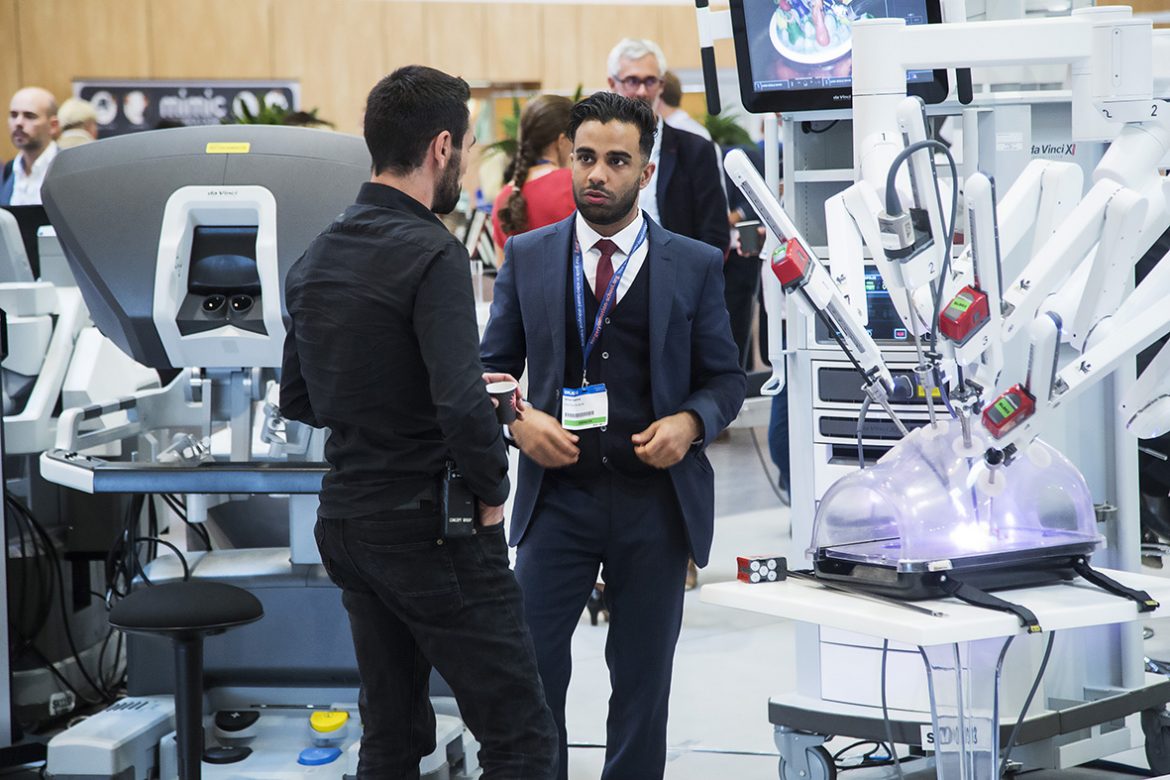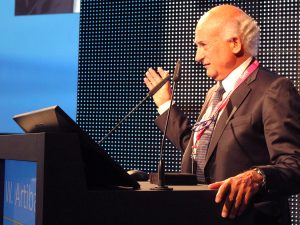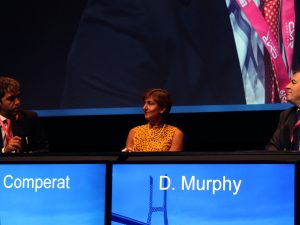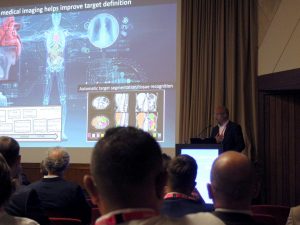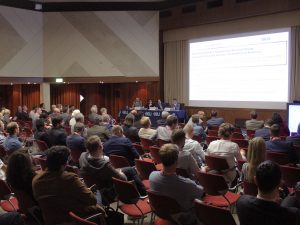Registration is currently open for ERUS19! The EAU Robotic Urology Section’s annual meeting is coming to Lisbon, Portugal on 11-13 September, 2019. The regular scientific programme starts on September 12th, but delegates are encouraged to take part in the Technology Forum on the 11th. Other activities on the 11th include the Junior ERUS – YAU meeting for young urologists. Courses by the European School of Urology are –for the first time– integrated into the regular scientific programme.
We spoke to Dr. Kris Maes (Lisbon, PT), ERUS member, Chairman of the Urology Department at Hospital da Luz in Lisbon, and Chairman of the ERUS19 Local Organising Committee about the upcoming meeting.
Diversification and future of robotics
“The Technology Forum at ERUS19 will reveal various aspects of the evolution of medical technology. We are all anxious to see how new systems will enter the market, what the price settings will be, and what innovations they will offer us. The new systems will have to prove themselves, irrespective of their cost, as the Da Vinci systems have proven themselves over the years.”
“Another important aspect will be the advancements in imaging and image implementation and the role we will be giving to Artificial Intelligence as a tool to improve the performance and teaching of robotic surgery. The Technology forum will be extremely interesting.”
Dr. Maes sees the potential of some of the technology that is due to be released in the near future: “For the moment it is unclear what is going to be the role of nanotechnology and Artificial intelligence in the field of Robotic surgery, what is sure is that it will have a role. Image detection and recognition could be helpful not only in training and surgical skill evaluation, but could also be helpful as aid in performance surgery. This together with image integration (MRI, CT etc…) in the robotic console, 3D reconstruction and various fluorescence linked applications should assist the surgeon in every way.”
“The introduction of 5G networks could reopen the remote surgery path for several applications. We are also seeing new robots will entering the market, probably evolving to a more specific robot for specific fields. Finally, let’s not forget the single trocar SP, already in use in the USA, entering Europe within months.”
An increasingly experienced audience
ERUS Chairman Prof. Alex Mottrie (Aalst, BE) has previously commented on the changing nature of the ERUS meeting as robotic surgery matures and widens in scope. Keeping delegates coming means that the ERUS meeting’s scientific programme needs to accommodate a range of topics for beginners and experts alike.
Maes: “It is indeed a challenge for the organizing committee to keep the ERUS interesting for all delegates. As the years have passed, the experts have become more experienced but lots of delegates also are, and they are more demanding. The courses are becoming more important and extended and will this year be integrated into the meeting. We will have specific courses on nerve-sparing prostatectomy, radical cystectomy, and partial nephrectomy but also on reconstructive surgery.”
“The live cases will all be performed by highly-skilled volume surgeons working only on the newest da Vinci X systems, showing the latest evolution of their technique. The SP single trocar system will make its entrance in this meeting and the scientific lectures are upgraded to reflect the latest level of knowledge. We hope to please every level of participants.”
Live surgery
Live cases will be coming from Hospital da Luz in Lisbon, where Dr. Maes is based. “My centre was a pioneer in robotic surgery and is still the leading hospital in robotic surgery in the country. It makes perfect sense for all procedures to take place here. During ERUS19 we have will have three robotic ORs at our disposal, each equipped with an Xi system.”
“We will try to show well-performed standard cases and a couple more challenging ones, as well as some rare cases, with the intention that everyone, whatever level, can pick something up from the experts.”
Since the last ERUS meeting, in Marseille in September 2018, Dr. Maes and the scientific committee have been preparing the hospital for the event. “We are having weekly meetings with various teams, coordinated by myself and my colleagues from the local organizing committee in order to prepare a smoothly-run and excellent meeting. Dr. Jochen Walz, local organizer for ERUS18, has been a great inspiration and help to guide us in this.”
A veteran ERUS member
Dr. Maes is an experienced robotic surgeon and longstanding ERUS member, having attended nearly every meeting since its inception in 2004.
“I guess I missed only two ERUS meetings since the beginning. Initially as delegate, and later on getting more involved as faculty in the meetings, then as part of the educational committee and recently as Associated Board member and live case surgeon.”
“I started in robotic surgery in Belgium in 2005. In 2011, I started at Hospital da Luz. It is now the reference of robotic surgery in Portugal. Since last year, our centre has been recognised as an ERUS Host center. Hosting an ERUS meeting in Lisbon, is an honour for myself and my team and I hope it will give a boost to robotic surgery in the country.”
“The evolution of the ERUS meeting has been tremendous, it started in France in 2004 where 20 physicians got together to discuss the newly emerging field of robotic-assisted urology. In 2011, ERUS joined the EAU as one of its sections. Over the last couple of years, the ERUS meeting has become the biggest robotic urology event in the world.”

